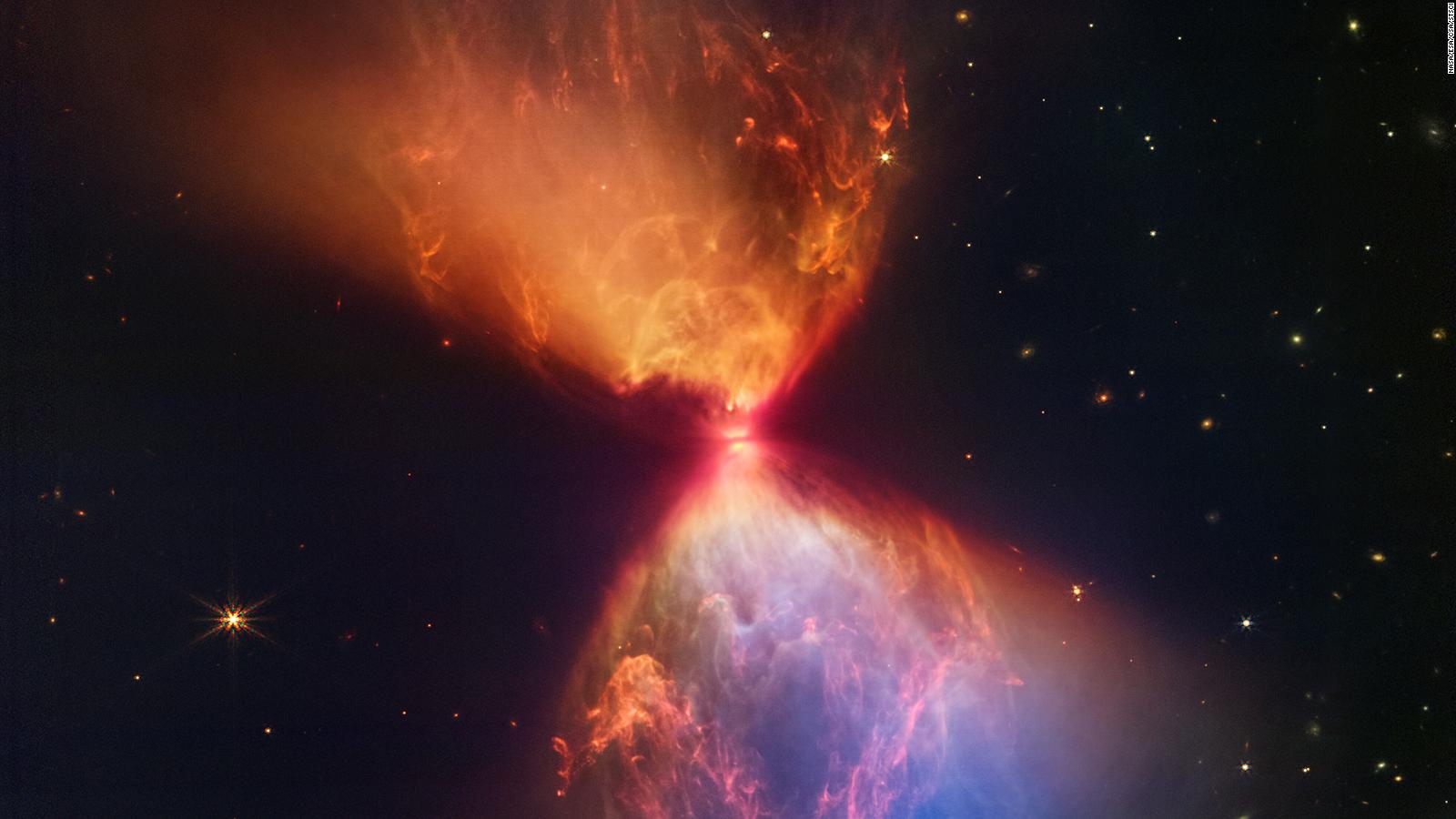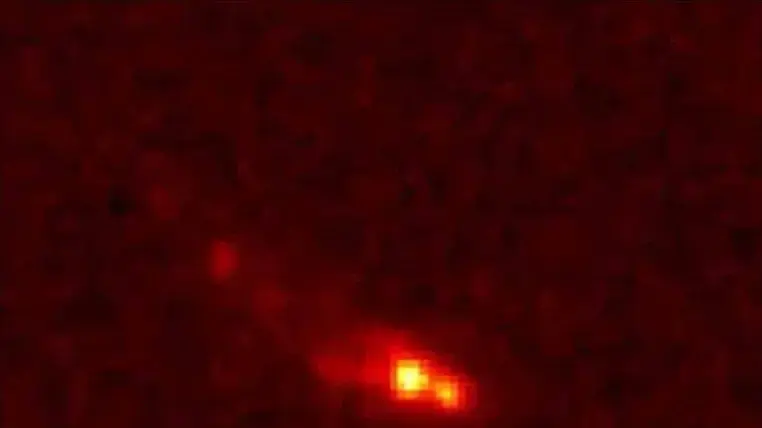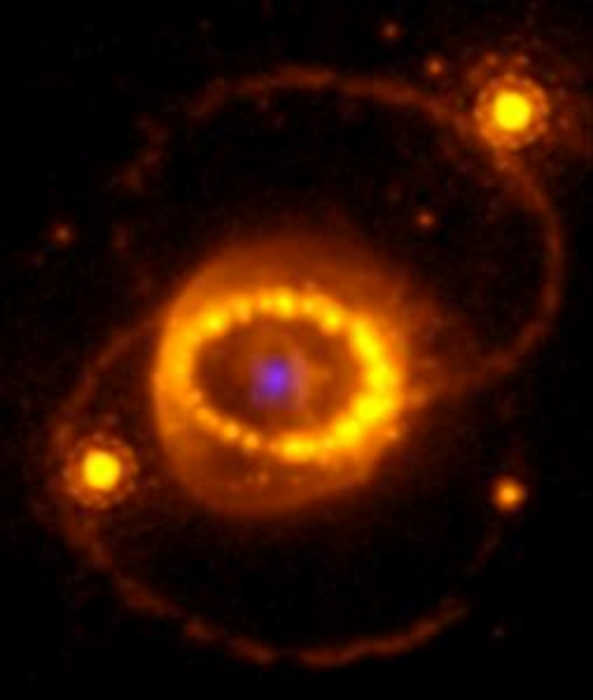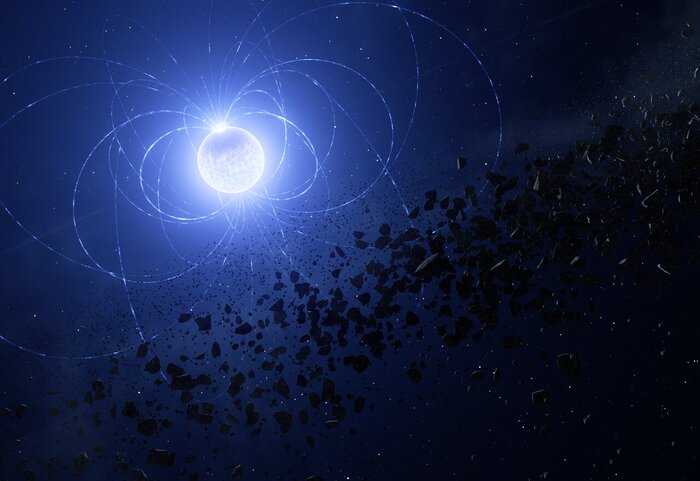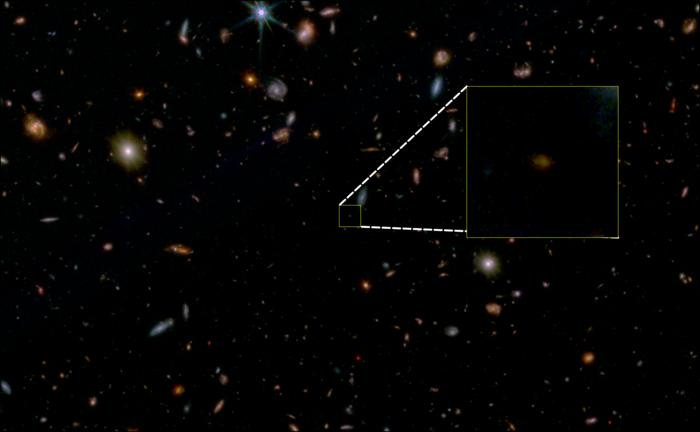(CNN) --
The James Webb Space Telescope has observed the smallest cosmic object to date: an unknown asteroid the size of the Roman Colosseum.
A team of European astronomers made the detection of the space rock, which is between 328 and 656 feet (100 to 200 meters) long, and is located in the main asteroid belt between Mars and Jupiter.
The ring-shaped belt is home to most of the asteroids in the solar system.
The main asteroid belt is closely aligned with the plane of the ecliptic, or the same plane that includes Earth's orbit around the sun.
The asteroid may be one of the smallest ever detected in the main belt.
Cosmic objects this small and dim are incredibly difficult to observe, but astronomers are now counting on Webb to discover more asteroids of this size in the future.
Surprising space sighting: Webb telescope observes the frozen heart of a molecular cloud
Other observations will help astronomers learn more about the asteroid and confirm that it is indeed a newly discovered object.
advertising
The detection of the asteroid occurred by chance, when Webb's research team focused the telescope's Mid-Infrared Instrument, or MIRI, on the main belt asteroid (10920) 1998 BC1, originally discovered in 1998, to take calibration images.
"Completely unexpectedly, we detected a small asteroid in the MIRI calibration observations," Thomas Müller, an astronomer at the Max Planck Institute for Extraterrestrial Physics in Germany, said in a statement.
"The measurements are some of the first MIRI measurements directed at the ecliptic plane and our work suggests that many new objects will be detected with this instrument."
Asteroids are leftovers from the formation of the solar system, and astronomers have determined the locations of more than 1.1 million of them.
An artist's illustration shows an irregularly shaped gray asteroid similar to the new object detected by the Webb telescope.
Many asteroids remain unknown, and Webb's finding suggests that the powerful infrared telescope has the ability to discover many more small rocky objects that would otherwise have escaped detection.
The positive side of a "failed" observation
The calibration images that Webb's research team took in their attempt to observe asteroid (10920) 1998 BC1 did not turn out as expected and were considered a technical failure because the object appeared too bright.
The astronomers were still able to use the data to test a new technique for determining an asteroid's orbit and size.
Observations of (10920) 1998 BC1 were combined with data from the European Space Agency's Gaia mission and ground-based telescopes.
While analyzing the data, the researchers detected an "intruder" in their observations: the new asteroid was making its first appearance.
Asteroid discovered just days ago makes one of the closest approaches to Earth
"Our results show that even 'failed' Webb observations can be scientifically useful, if you have the right mindset and a bit of luck," Müller said.
"Our detection occurred over the main asteroid belt, but Webb's incredible sensitivity made it possible to see this roughly 100-meter object at a distance of more than 100 million kilometers."
And astronomers won't be surprised if other unknown space rocks creep into future Webb images.
"This is a fantastic result that highlights MIRI's capabilities to serendipitously detect an asteroid of a previously undetectable size in the main belt," said Bryan Holler, Webb's support scientist at the Space Telescope Science Institute in Baltimore, in a statement.
“New ones of these observations are in the pipeline, and we are expecting new asteroid interlopers in those images!”
AsteroidWebb Telescope

